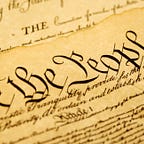Is Free-Speech “Free”?
Determination of the freedom of a speech
Sebastian Douglas once said, “Nothing in this world is free” and now it is said and practiced by everyone. So, is Free Speech, free? The act of exercising Free Speech is protected under the Indian Constitution, and Douglas’ idiom fits perfectly even in this case. The said fundamental right is not absolute in nature and needs to be read with certain exceptions. These exceptions are prudently drawn situations through which a legal line is drawn by the legislation as to how far you can practice your free speech. The exceptions stipulate that exercise of this right shall not be at the expense of affecting operation of any existing law, or preventing the State from making any law thereof. Thus, reasonable restrictions are imposed in the interests of the sovereignty and integrity of India, the security of the State, friendly relations with foreign States, public order, decency or morality or in relation to contempt of court, defamation or incitement to an offence. If a “speech” resorts to any of the above-mentioned restrictions, it cannot qualify for protection. However, there is an evident vagueness when you ask the question, “How do you identify a speech to be acting in a way which attracts the above-mentioned restrictions? The recent not-so-heavy penalty inflicted on Prashant Bhushan for advocating his opinions via world’s most preferred opinion board, Twitter, may answer our question .
We live in a world of perceptions and more so a world of people who want to advocate their perceptions. Taking an example of decency, there is always an issue as to how does one concretise decency in this rapidly growing world and thus consider a publication or an act to be indecent in nature and thereby attract censorship. There is a competing fundamental right to speech involved here which cannot be undermined. If a content is obscene enough to pollute the minds of the viewers or even impart a message which is likely to act against the public interest, it is regarded as indecent or obscene as the case may be. Even during the course of evaluation of breach of privacy, there is a competing national interest involved and sometimes even in the nature of freedom of speech. A publication house publishing a content about an individual may invite a privacy suit. Having said that, the presence of a competing freedom of speech in favour of the publishing house cannot be disregarded. Similarly, the case of Prashant Bhushan vocalising his opinion on controversy board, Twitter and exercising his free speech was declared as a contempt considering it was a “malicious, scurrilous, calculated attack” on the institution of administration of justice. The competing Free Speech in this case in favour of the Advocate was observed by the court whilst passing the decision.
The court observes the test of doctrine of proportionality whilst dealing with competing rights involved. Often regarded as the balancing exercise, the doctrine of proportionality explains that the exercise and protection of the rights shall be in proportion to the public interest. In the Bhushan case, the free speech of the civil rights advocate was held guilty for contempt on the grounds of exercising a speech which was against the Judiciary. Thus, the issue involved was to protect the free speech in proportion to the public interest involved. Constitution of India prohibits any speech towards protection which amounts to contempt. The application of the doctrine is upon case to case basis, that is to say that there is no standard format to be complied with to reach the conclusion. The random approach applied here is an easy ticket to conceive several precedents of the same nature of debarring free speech, if not laid down in a consistent manner.
Thus, the only concern arising is a need for a specific framework whilst weighing the fundamental rights which otherwise will increase the dependence on the precedents to draw judgements. The issue with a sole reliance on precedents is to declare judgments of the similar nature thus depriving the citizens of fundamental right. Hence, even though the order is of penalty of merely a shining one-rupee coin, there is a big concern of the judgement acting as a harmful precedent and thus likely to debar the exercise of free speech to a great extent.
